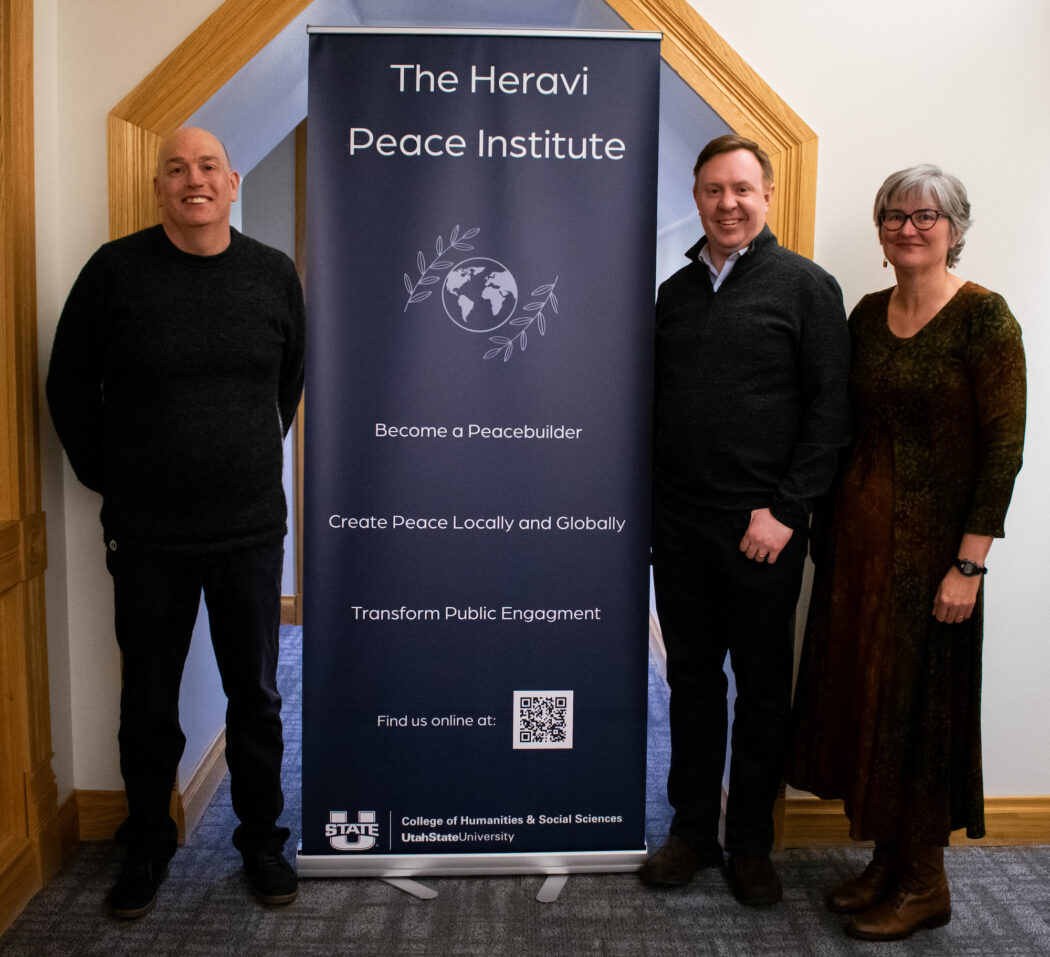Heravi Peace Institute: Offering peace-building skills to all students
Mehdi Heravi visited Utah State University for the official signing of the new Heravi Peace Institute on Wednesday, Nov. 2. Heravi made a substantial financial contribution to help support the institute.
Heravi is from Iran and moved to Logan during his high school years. He attended USU and has been a friend of USU for years. The donation to the peace institute is just one of multiple contributions he has made to the university.
The Heravi Peace Institute is an interdepartmental effort housed within the College of Humanities and Social Sciences. It offers different certificates and programs for students to gain peace-building and conflict-solving skills, and it also offers opportunities to get involved in global projects.
The goal of the peace institute is to prepare students to enter the workforce with multiple skills, including being adept at cultural peacebuilding, conflict management, nonprofit work, creating intentional relationships and enacting change in communities.
Colin Flint is a professor in the political science department and is one of the main people who brought the institute together. He is serving as director of the Institute for the time being while a search is being conducted to find a full-time director.
“We’re trying to look at peace in a number of ways that will be useful for students in their careers,” Flint said. “Whether that be trying to engage global issues or whether it would be much more local issues.”
The institute currently has four different certificates students can receive from taking classes in a variety of different departments. These departments include history, political science and religious studies.
The four certificates are global peacebuilding, conflict management, leadership and diplomacy and a nonprofit organizational and social entrepreneurship certificate.
Even though the peace institute is housed within CHASS, all students of USU have access to its resources and programs.
“It’s an institute in which we all connect students to projects across the globe, engaging in various forms of peace-building within the state of Utah, and across the globe,” Flint said.
About two years ago there was a push throughout the university to create undergraduate certificates. This led to the collaboration between departments and eventually the creation of the peace institute with the help of Heravi.
Another part of the institute is the conversational space-makers program which is led by professor Clair Canfield.
Canfield works in the communication studies department, specializing in conflict.
This program came about after students would often come to Canfield for advice.
“Unfortunately, giving advice to people has some pretty significant consequences, one of which is the advice-giver doesn’t have to deal with the consequences of it,” Canfield said.
Canfield started the space-makers program as an alternative to giving advice. The program gives students a place where they can talk things out and be heard.
The program started in 2021. It allows students to work as space-makers helping their peers to work out their own conflicts, decisions, setbacks, frustrations and more.
“The basic principle of space-making is that we believe in people’s capacity to change,” Canfield said. “And conflict is usually showing us something about what we would like to have differently or to change within ourselves or our relationships. We believe people have the capacity to do that.”
Students have to take specific classes from Canfield and go through hours of training before becoming space-makers.
Abby Wallentine, the peace institute’s staff assistant, was a space-maker last year.
“Do you want advice-free and judgment-free listening, that’s kind of a really easy way to explain it,” Wallentine said. “Even though there’s a lot more to it than that.”
Any student at USU can make an appointment to meet with one of the space-makers. Canfield said the space-makers program is there to help everyone.
Flint said he sees a good future for the Heravi Peace Institute.
“Peacebuilding, there are different forms of this, but it’s a way that we can transform conflicts,” Flint said. “And by engaging with conflicts, we can transform ourselves. It starts very much at the individual level of how one sees oneself, deals with one’s own biases, prejudices and anger, and is able to be open to other groups, and groups or individuals who may be hostile to them. And by transforming oneself in that way, one can transform the conflict.”

